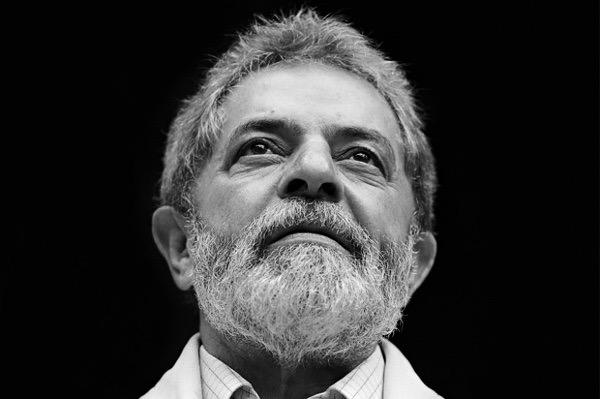“I would stay behind bars for 100 years before I traded my dignity for freedom,” says former President in first interview allowed since imprisonment
by Brian Mier
It is illegal to deny prisoners the freedom of expression to speak with members of the press in Brazil. This, however, did not stop former judge and current Justice Minister Sergio Moro from barring Luiz Inacio Lula da Silva from giving interviews for over one year. The case which rose up to the Supreme Court and, after a ruling forcing the Curitiba Federal Police headquarters where the former President has been illegally held in solitary confinement in violation of the Mandela Rules since April 7, 2018 to allow the former President to give one, 2 hour interview to two Brazilian journalists, it still took 6 months to implement, as Moro’s Curitiba cronies did everything they could to block the process.
Now that the interview has ended, it is easy to see why the right was so terrified of granting Lula his legal right of speaking to the press during last year’s election season. The two journalists who conducted the interview, Monica Bergamo (Folha de São Paulo) and Florestan Fernandes Jr. (El Pais) found a proud and lucid man with his head held high who systematically dismantled the kangaroo court process which let to his political imprisonment and removal from last year’s elections and the farcical presidency that resulted from it.
“Brazil is now being governed by a group of Lunatics,” said the former President. “The elite have to engage in a process of self criticism on how Bolsonaro became President.”
On whether he would ever agree to any kind of plea bargain Lula said, “I will stay behind bars for 100 years before I will trade my dignity for freedom”.
Lula also spoke of former judge turned Justice Minister Sergio Moro and his Lava Jato task force, which was just blocked from receiving a R$2.5 billion gift of confiscated Petrobras money that was initially earmarked for the public education and health systems from the US Department of Justice to start their own privately managed “anti-corruption” foundation in Curitiba. “I know the place history will reserve for me. And I know who’ll be in the trashcan.” he said.
A complete transcript of the two hour interview will be made available soon.
[qpp]

